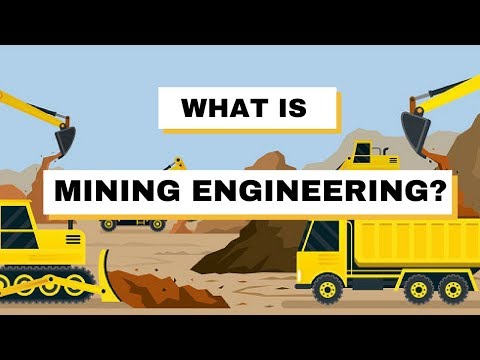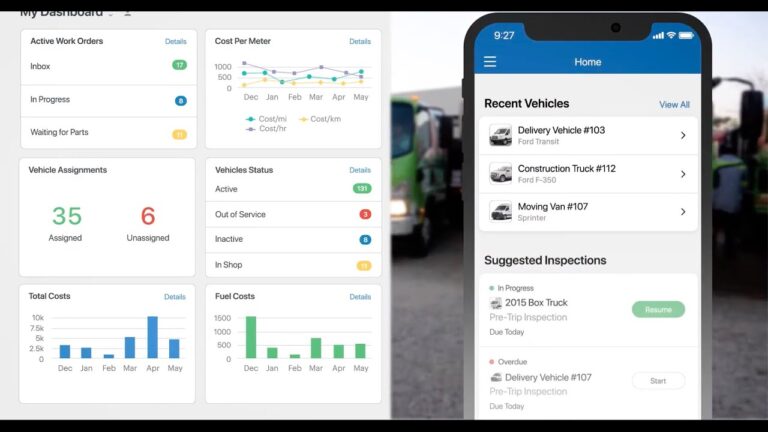High-Paying Mining Engineering Jobs: Description and Salary

Mining Engineering Job Description Template
Mining Engineering Job Description Mining engineering is a field of engineering that focuses on the discovery, extraction, and processing of minerals from the Earth. Mining engineers play a crucial role in ensuring the efficient and safe extraction of valuable resources, such as coal, metals, and minerals. Their work involves designing and implementing mining operations, as well as developing strategies to minimize environmental impact and maximize resource recovery. One important aspect of a mining engineer’s job is exploration. They use various techniques and technologies to locate mineral deposits and assess their viability for mining. This involves conducting geological surveys, analyzing geological data, and using computer modeling to determine the best locations for mining operations. Another important responsibility of mining engineers is designing and planning mining operations. They develop detailed mine plans, specifying the methods, equipment, and processes required for extraction. They also oversee the construction of mine infrastructure, including tunnels, shafts, and ventilation systems. Mining engineers are also responsible for ensuring the safety of mining operations. They assess the risks associated with mining activities and develop safety protocols to prevent accidents and protect workers. They also monitor and manage the environmental impact of mining operations, implementing strategies to minimize pollution and rehabilitate the land after mining is completed. In addition to technical expertise, mining engineers must possess strong analytical and problem-solving skills. They must be able to assess complex geological and engineering data, make decisions based on this information, and adjust mining plans as necessary. Overall, mining engineering is a challenging and rewarding profession that contributes to the sustainable development of natural resources. With the growing demand for minerals worldwide, the role of mining engineers in ensuring responsible and efficient resource extraction becomes increasingly crucial.Mining Engineering Responsibilities
Mining Engineering Requirements
How Much Does A Mining Engineering Make?
Mining Engineering Salary
| Experience Level | Salary Range |
|---|---|
| Entry Level | $60,000 – $80,000 |
| Mid-Level | $80,000 – $120,000 |
| Senior Level | $120,000 – $200,000 |
Mining engineering salaries can vary depending on the level of experience. Entry-level mining engineers can expect to earn between $60,000 and $80,000 per year. As they gain more experience and move into mid-level positions, salaries can range from $80,000 to $120,000. Senior mining engineers who have extensive experience and expertise can earn salaries ranging from $120,000 to $200,000 or more. It’s important to note that these figures are approximate and can vary based on factors such as location, company size, and industry demand. Overall, mining engineering offers competitive salaries and opportunities for growth in the field.
Mining Engineering Salaries by Country
Top Paying Countries for Mining Engineering
| Country | Average Salary (USD) |
|---|---|
| Australia | 150,000 |
| United States | 130,000 |
| Canada | 120,000 |
| Switzerland | 110,000 |
| Norway | 100,000 |
Mining engineering is a highly lucrative field, and professionals in this industry can expect to earn substantial salaries. According to the latest data, the top paying countries for mining engineering are Australia, United States, Canada, Switzerland, and Norway. In Australia, mining engineers earn an average salary of $150,000 per year, making it the highest paying country for this occupation. The United States follows closely with an average salary of $130,000, while in Canada, mining engineers earn around $120,000 on average. Switzerland and Norway round out the top five with average salaries of $110,000 and $100,000 respectively.
A video on the topic Mining Engineering
Video Source : Kwan_FungInterview Questions for Mining Engineering
1. Can you explain what mining engineering is?
Mining engineering is a field that involves the extraction of valuable minerals and resources from the Earth. It involves the planning, design, and operation of mines to ensure the safe and efficient extraction of minerals.
2. What are the main responsibilities of a mining engineer?
A mining engineer is responsible for designing and implementing mining operations, overseeing the construction of mines, managing the extraction process, and ensuring the safety and environmental sustainability of mining activities. They also assess the potential of mineral deposits and develop strategies for their extraction.
3. How do you ensure the safety of a mining operation?
To ensure the safety of a mining operation, a mining engineer implements various safety measures such as conducting risk assessments, developing safety protocols, providing training to miners, and enforcing compliance with safety regulations. They also monitor and inspect mining sites regularly to identify and address potential hazards.
4. What environmental concerns are associated with mining?
Mining can have several environmental impacts, including habitat destruction, soil erosion, water pollution, and air pollution. It can also contribute to climate change through the release of greenhouse gases. Mining engineers work to mitigate these impacts by implementing sustainable mining practices, such as reclamation and rehabilitation of mined areas, and minimizing the use of harmful chemicals.
5. What skills are important for a mining engineer to possess?
Important skills for a mining engineer include knowledge of geology and mineralogy, proficiency in mining software and technology, strong analytical and problem-solving abilities, project management skills, and excellent communication and teamwork skills. They should also have a strong understanding of safety regulations and environmental sustainability.
6. What are the different methods of mining?
There are several methods of mining, including open-pit mining, underground mining, placer mining, and mountaintop removal mining. Each method is chosen based on the type of deposit and the economics of extraction.
7. How do you assess the economic viability of a mining project?
To assess the economic viability of a mining project, a mining engineer considers factors such as the quality and quantity of the mineral deposit, the market demand for the mineral, the estimated costs of extraction, and the potential revenue from selling the extracted minerals. They also conduct financial analysis and feasibility studies to determine if the project is financially feasible.
8. What are the current challenges in the mining industry?
Some of the current challenges in the mining industry include declining ore grades, increasing energy and water consumption, environmental concerns, and the need for sustainable mining practices. Mining engineers are constantly working on developing innovative solutions to address these challenges and make mining operations more efficient and environmentally friendly.
9. How do you stay updated on the latest advancements in mining technology?
To stay updated on the latest advancements in mining technology, a mining engineer can attend conferences and seminars, participate in professional organizations, read industry publications, and engage in continuous learning and professional development activities. They can also collaborate with other professionals in the field and stay connected with industry experts.
10. What do you find most rewarding about working as a mining engineer?
As a mining engineer, the most rewarding aspect is being able to contribute to the extraction of valuable resources that are essential for various industries and everyday life. It is satisfying to see a mining project successfully implemented, ensuring the efficient and sustainable extraction of minerals while prioritizing safety and environmental protection.






